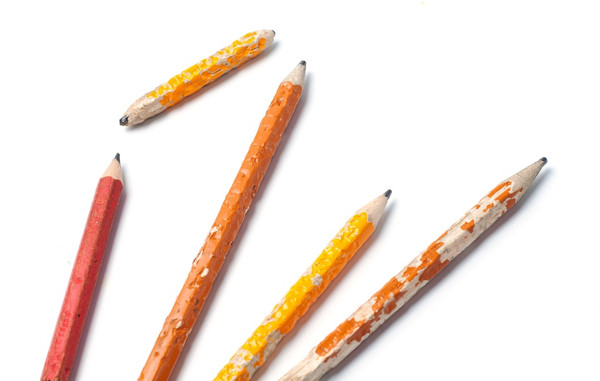Sensory Processing and Why Kids Chew Inappropriate Things
While chewing is a frustrating stage, it is actually a normal part of development for babies and toddlers. But it’s when kids continue to chew and chew inappropriate things, and by inappropriate, I mean unsuitable and unsafe, that's when parents generally start to get worried.
What makes kids chew inappropriate things?
It’s not that they’re trying to chew on inappropriate things. It’s just that they’re chewing on whatever they can get their hands on first because they need to feel the pressure on their jaw.
This is particularly true if your child has sensory processing challenges or has been diagnosed with sensory processing disorder (aka SPD). This pressure will help your child to:
- organise their thoughts
- process information
- cope in their environment
Sometimes kids that chew will even bite and not just themselves but others. And they get labelled as “biters” when they’re actually not acting out, and biting is actually their coping mechanism.
Some kids find the need to chew so strong, so they can get that release and self-soothe emotion that they’ll chew whatever they can get their hands on – safe or not.
There’s other forms of sensory processing disorder too. It’s not just limited to oral. So, if you are concerned that your child is chewing beyond their years, or this article raises some flags with you then we highly recommend speaking to your child’s paediatrician or occupational therapist (OT) if they have one.
But let’s look at some common reasons why kids will chew too.
5 reasons why kids chew on inappropriate things
There are legitimate reasons why kids will chew on things, but no matter the underlying cause, it comes back to the fact that kids chew because it’s calming and soothing.
You will probably find the top causes for chewing are:
Anxiety
Some people (adults included) bite their fingernails or tap their feet when they’re anxious, and some kids chew. Generally, they’ll chew whatever is easy access and that they can get their hands on, which sometimes means they’re chewing on inappropriate things. They don’t care what they chew on; they just have the urge to chew.
Stress
Kids are known to chew when in a stressful situation or environment. Whatever the cause, your child will chew to self-soothe as they need that deep pressure that chewing provides to their gums to calm themselves.
Sensory processing issues
As mentioned above, kids with sensory processing disorder (aka SPD) process the world differently and can find the world around them overwhelming. So, how do they cope with that? They find a way to self-soothe, and for many kids with oral sensory processing challenges, they chew.
Boredom
Some kids don’t know how to be bored. We’ve got screen time and technology to thank for that. It’s so easy for kids to be occupied 24/7 between:
- laptops
- ipads
- mobile phones
- smartwatches
- gaming devices
And the list goes on. So, what’s an easy thing to do? Chew, of course!
Habit
For some kids, if they’ve been a big chewer when they’re younger, it could just be a habit they’ve developed. And like any habit, it doesn’t stop overnight. You’ll need to work with your child to break the habit. But first, ensure it is a habit and not sensory-related by speaking to your child’s paediatrician or occupational therapist first if they have one.
How to help your child if they chew?
First, you’ll need to determine whether your child is chewing because it’s sensory-related or behavioural? Just telling your child to stop won’t work if it’s sensory-related. Rather, give your child something safe to chew on instead.
There’s a range of fabulous products you can get that are suitable for kids to chew safely:
Chewy Charms - that clip on to tops so your child can’t misplace it
Chewy Tubes – perfect if your child likes the feeling of getting right to the back of their molars
Necklaces – in various shapes from blocks to buttons, raindrops, and more
Pencil toppers – great if your child tends to chew on their pencils/pens
Bangles
And the list seriously goes on.
So, rather than trying to prevent your child from harming themselves on something inappropriate, give them something that they can safely chew.
You can see above that we’ve got some fantastic, safe chewable products in our online store or come in and say hi and check out the range in person at our Altona North shop.
Recent Posts
-
The Power of Routine: Why Predictability Helps Neurodivergent Kids Thrive
As a parent of three neurodivergent children myself, I know that for many of these kids the world ca …Apr 28, 2025 -
Creating an Inclusive and Sensory-Friendly Easter for Neurodivergent Kids
Easter is a time of fun, food, and family gatherings. However, for neurodivergent kids, traditi …Apr 14, 2025 -
Understanding the Flight, Fight, or Freeze Response in Neurodivergent Kids
When a child has a melt down, runs from the room, or goes completely still and silent, it&rsquo …Apr 10, 2025




